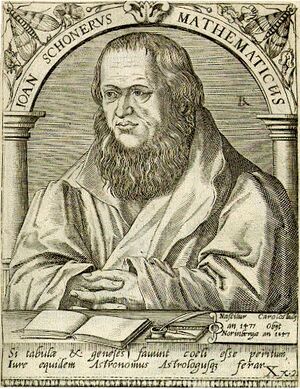Johannes Schöner (nonfiction): Difference between revisions
No edit summary |
No edit summary |
||
| Line 25: | Line 25: | ||
* [https://en.wikipedia.org/wiki/Johannes_Sch%C3%B6ner Johannes Schöner] @ Wikipedia | * [https://en.wikipedia.org/wiki/Johannes_Sch%C3%B6ner Johannes Schöner] @ Wikipedia | ||
[[Category:Nonfiction (nonfiction)]] | [[Category:Nonfiction (nonfiction)]] | ||
| Line 31: | Line 30: | ||
[[Category:Astrologers (nonfiction)]] | [[Category:Astrologers (nonfiction)]] | ||
[[Category:Cartographers (nonfiction)]] | [[Category:Cartographers (nonfiction)]] | ||
[[Category:Cosmographers (nonfiction)]] | |||
[[Category:Mathematicians (nonfiction)]] | [[Category:Mathematicians (nonfiction)]] | ||
[[Category:People (nonfiction)]] | [[Category:People (nonfiction)]] | ||
[[Category:Photographs (nonfiction)]] | [[Category:Photographs (nonfiction)]] | ||
[[Category:Priests (nonfiction)]] | [[Category:Priests (nonfiction)]] | ||
Latest revision as of 16:44, 26 June 2017
Johannes Schöner (16 January 1477 in Karlstadt am Main – 16 January 1547 in Nürnberg) (aka, Johann Schönner, Johann Schoener, Jean Schönner, Joan Schoenerus) was a renowned and respected German polymath.
He was a priest, astronomer, astrologer, geographer, cosmographer, cartographer, mathematician, globe and scientific instrument maker and editor and publisher of scientific tests.
In his own time he enjoyed a European wide reputation as an innovative and influential globe maker and cosmographer and as one of the continent's leading and most authoritative astrologers.
Today he is remembered as an influential pioneer in the history of globe making and as a man who played a significant role in the events that led up to the publishing of Copernicus' "De revolutionibus" in Nürnberg in 1543.
In the News
Fiction cross-reference
Nonfiction cross-reference
External links:
- Johannes Schöner @ Wikipedia
